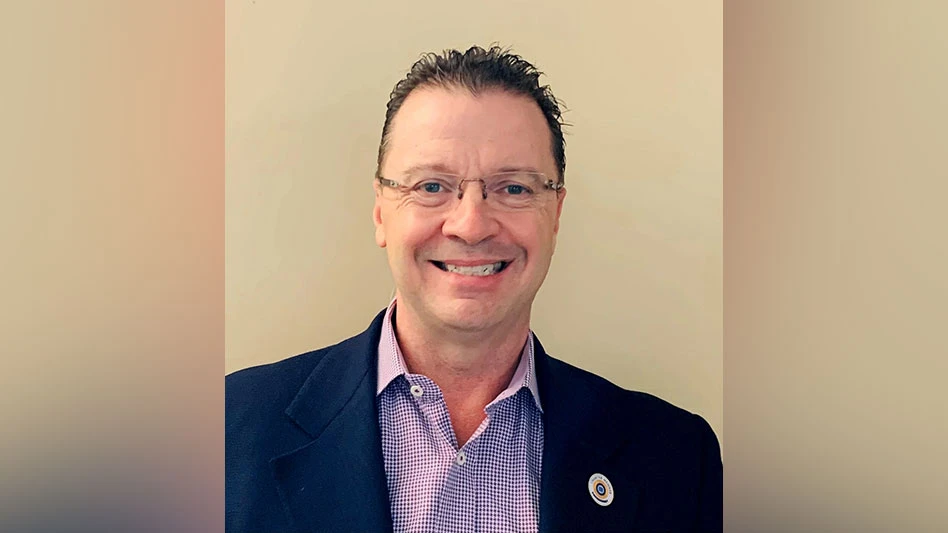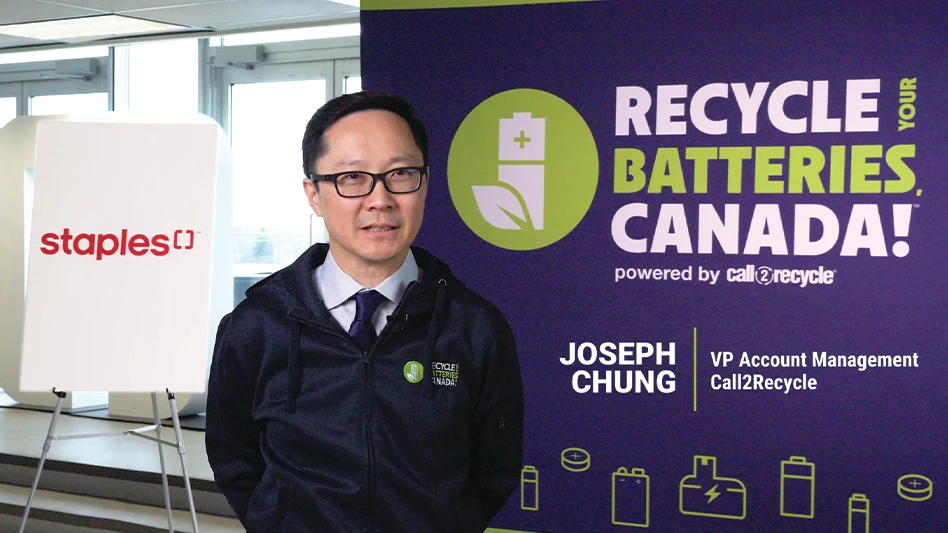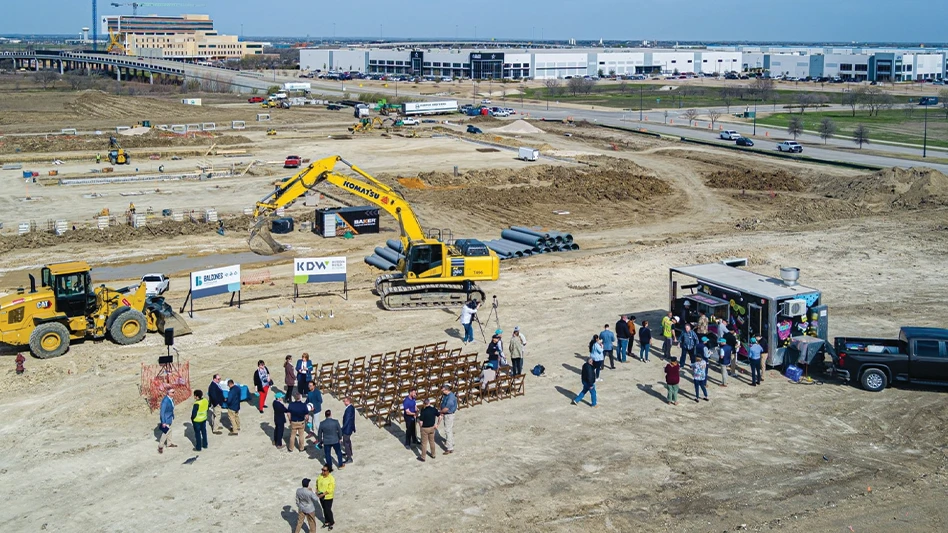

As chair of the Institute of Scrap Recycling Industries (ISRI), Brian Henesey views his role as similar to conducting a symphony.
“We want to keep good, harmonious music,” he says. “But to do that, you have to make sure the brass and the guitars and the tubas and the pianos are all in the position where the equipment works and they’re able to work together and we’re able to make good music.”
Since taking over the role from former chair Gary Champlin in April 2022, Henesey, also the vice president and general manager of Commerce City, Colorado-based metals recycler Rocky Mountain Recycling, has tried to mimic a conductor’s steady hand, putting various committees and working groups together while helping ISRI’s national leadership push forward with initiatives to better service its membership as the recycling industry continues to move past the COVID-19 pandemic.
The term of an ISRI chair is two years, and Henesey will move on to the role of immediate past chair upon the conclusion of the organization’s 2024 convention in Las Vegas, making way for chair-elect Colin Kelly, vice president of public affairs at Portland, Oregon-based Radius Recycling (formerly Schnitzer Steel Industries).

With little less than a year left in his term, Henesey already has helped facilitate two major ISRI milestones: an attempt to shift how those inside the industry communicate with those outside of it through a collaboration with New York-based language consultancy Maslansky and Partners, and its 2023 Convention and Exposition in April in Nashville, Tennessee, that turned out a record 6,600 attendees.
ISRI currently represents more than 1,500 companies worldwide in the ferrous, nonferrous, electronics, glass, paper, plastic, textile, tire and rubber sectors. In the following interview, Henesey shares how he views ISRI’s broader role in the recycling industry, its global reach and its ongoing evolution.
Recycling Today (RT): After succeeding Gary Champlin in 2022, what were the challenges of continuing to lead ISRI out of the pandemic?
Brian Henesey (BH): Stepping into the role of national chair at ISRI in 2022 presented a set of distinct challenges as we transitioned out of the pandemic era. One of those challenges was shifting from the virtual landscape back to in-person meetings. ISRI had relied heavily on Zoom for two years, and with the world gradually returning to in-person gatherings, we needed to readjust our approach. This shift required us to invest time and resources in reestablishing face-to-face connections domestically and internationally.
The global trend of returning to in-person meetings meant a significant increase in travel demands. To reconnect and make up for lost opportunities, I found myself on the road for nearly three weeks each month during my initial six months as chair. This travel was essential for rebuilding relationships, fostering collaborations and keeping abreast of industry developments across various regions.

In addition to the logistical challenges, there were economic factors to consider. Inflationary pressures and financial headwinds were impacting the markets. This necessitated strategic and immediate actions to ensure the organization remained resilient amidst these uncertainties.
It was critical that we were adequately managing the financial reserves of our members. Maintaining and safeguarding these reserves became a top priority, and it was vital for me, along with our leadership team and fellow volunteer leaders, to communicate transparently and effectively. We aimed to instill confidence in our members that ISRI’s financial interests were protected.
RT: This year’s convention brought out the most attendees in its history. What led to the event’s success?
BH: Firstly, the choice of hosting the event in Nashville played a pivotal role. The city’s central location made it easily accessible for a larger number of attendees, as many people could make the trip by driving. Additionally, Nashville has a reputation as a vibrant and dynamic city and that created a buzz and drew interest from many industry participants.
The timing of the convention also contributed to its success. It was the second live convention following the pandemic, and there was a noticeable eagerness among individuals to reengage in networking and business activities. Research and experience indicated that networking is a significant value proposition for ISRI members. The desire to connect with like-minded professionals was further amplified by the event’s location and timing, setting a positive foundation for its success.
Surpassing attendance expectations was no surprise. Walking through the showroom and interacting with attendees, there was an unmistakable energy and optimism that was unprecedented. Attendees were enthusiastic and positive, embracing opportunities within the industry. The convention’s first-day keynote speaker, former Mexican President Vicente Fox, added to the event’s appeal. His speech resonated with the audience and his interest in exploring the trade show floor highlighted the impressive technological advancements within our industry.
A remarkable highlight was the interaction between President Fox and ISRI members from Mexico or Mexican descent. Their excitement and engagement with President Fox underscored the convention’s success in fostering meaningful connections and exchanges among attendees.

RT: As chair, what initiatives have you helped push forward and how is the organization evolving?
BH: One notable achievement has been our progress in refining our industry language with a new lexicon. This language enhances our ability to communicate effectively with individuals outside our sector. While we’re comfortable using industry-specific terms, we’ve recognized that words like “scrap” may not convey the positive message we intend when engaging with community leaders, policymakers and legislators.
To address this, during past ISRI chair Gary Champlin’s administration, we retained the services of [New York-based language consultancy] Maslansky and Partners, and they took a deep dive with industry insiders and outsiders to understand how people perceive our industry. The results of their research were interesting, compelling and, quite frankly, surprising. This collaboration represents a significant milestone for our association.
The ongoing effort lays the groundwork for our industry’s future communication strategies, aligning with the idea that it’s not just what we say, but what we hear, and it’s not what we do, but what people see.
Like all industries, our industry has been evolving and transforming for the last 20 years. Part of this transformation and evolution took place during and post-COVID. We’ve had significant consolidation within many companies, particularly within the recycled metals sector. I believe that will continue. Also, outside our industry, there is a societal push within communities for involvement, and being a good player within a community.
The administration now is working with environmental justice guidelines and sustainability guidelines, and that is part of the evolution that we as an industry need to look at as an opportunity and not as a challenge, embrace it and be good neighbors within our communities.
Our industry has changed so much in the last 20 years, it’s imperative our association [continues] to evolve to fit the current needs and expectations of its membership. To continue to represent our members' needs and expectations, it’s imperative for us to represent all commodities, structure our advocacy approach to be reflective of today’s political environment and design an association structure that creates the best approach to deliver necessary leadership and services.
At the same time, while this evolution continues, it’s imperative we don’t forget where we come from as an association and that where we are today would not be possible without the many years of hard work from our previous leadership and members. It’s critical we maintain this understanding and respect for this legacy.
It is imperative for our association to have a unified voice and structure that reflects the industry of today. The organization’s history was a siloed national board of committees with chapter representation in the states. It is critical to bridge these silos and represent our industry and members as one.

RT: How do you view ISRI’s mission going forward?
BH: We need to proactively drive initiatives instead of waiting for things to happen.
From an advocacy perspective, it’s crucial that we actively interact with lawmakers at the local, state and federal levels. We must be involved in ongoing regulations and potential legislation, providing education on recycling-related concerns. We must have a seat at the table to ensure our members’ and industry’s concerns are represented.
Our industry faces significant challenges, like PFAS, or forever chemicals, which we must ensure our industry from being classified as generators.
As the world shifts to decarbonization and increased electrification, our industry must take a leading role. With the rise of electric vehicles (EVs), our association must be responsible for safe EV handling, collaborating with manufacturers, legislators, regulators and all parties involved.
Dealing with lithium-ion batteries is another ongoing concern. As with electric vehicles, their prevalence in everything from gadgets to toys, poses safety risks. Proper handling and disposal are crucial, requiring us to engage with all stakeholders.

RT: How do you view the current state of the recycled materials industry?
BH: I always believe in short-term, midterm and long-term. My background is in recycled metals, but the other commodities we represent are mostly market-driven. That’s the nature of the beast, you’re going to have better times and worse times.
Our industry is experiencing significant changes, but change has always remained constant. Our sector is known for its resourcefulness and innovation, and those will continue to drive us forward. While we currently face a range of regulatory and legislative challenges, it’s important to note there are also opportunities for growth.
Recycled materials are already produced and are a clean alternative to virgin or mined materials. Short term, there have been challenges, and that’s going to happen with market cycles. But midterm and long-term are incredibly bright.
Get curated news on YOUR industry.
Enter your email to receive our newsletters.

Explore the September 2023 Issue
Check out more from this issue and find your next story to read.
Latest from Recycling Today
- Recycled steel price crosses $500 per ton threshold
- Smithers report looks at PCR plastic’s near-term prospects
- Plastics association quantifies US-EU trade dispute impacts
- Nucor expects slimmer profits in early 2025
- CP Group announces new senior vice president
- APR publishes Design Guide in French
- AmSty recorded first sales of PolyRenew Styrene in 2024
- PRE says EU’s plastic recycling industry at a breaking point





